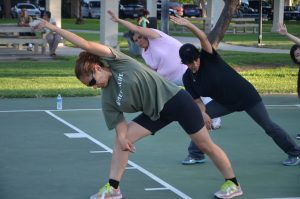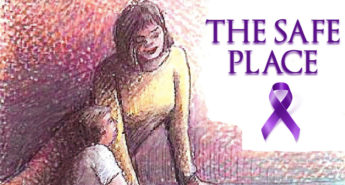 National Women’s Health Week was created by the federal Office of Women’s Health as a way to encourage women to make choices that lead to better physical and mental health. Here at The Safe Place, the most pressing concern for women’s health centers around domestic abuse.
National Women’s Health Week was created by the federal Office of Women’s Health as a way to encourage women to make choices that lead to better physical and mental health. Here at The Safe Place, the most pressing concern for women’s health centers around domestic abuse.
The adverse effects of domestic abuse on women’s health are well documented. Not only do victims of domestic violence face the typical physical signs of abuse such as bruises, broken bones, head injuries, internal injuries, throat damage from strangulation, etc., but women often face health issues that many wouldn’t link to domestic violence. Often, women face sleeping disorders, nightmares, vaginal bleeding and pelvic pain, unwanted pregnancy, and sexually transmitted infections (STIs). They are 1.5 times more likely to contract HIV and other sexually transmitted diseases.
There is a strong link between violence against women and many long-term health issues including arthritis, asthma, chronic pain, digestive issues, irritable bowel syndrome, ulcers, compromised immune systems, and migraine headaches. Victims of domestic violence have higher rates of high blood pressure, cancer and heart disease. Traumatic brain injuries (TBI) from injuries as a result of domestic violence can have both short-term and long-term effects such as headache, confusion, dizziness, nausea, speech issues, memory issues, concentration problems, and sleeping disorders. Women who are victims of domestic violence are 16% more likely to have a low birth-weight baby.
The impact of abuse on mental health is staggering: more than 50% of domestic violence victims suffer from post traumatic stress disorder (PTSD) and/or depression. They also have higher rates of anxiety disorders, eating disorders, and substance abuse. Suicide is listed as the 10th leading cause of death in the U.S., but is the 2nd leading cause of death among those 10-34 years of age. Studies have found that as many as 23% of domestic violence victims have attempted suicide as opposed to 3% of the general public. Domestic violence is listed as a factor in 25% of suicide attempts in females in the United States.
One of the most powerful ways to improve the health and well-being of women in the United States is to eliminate domestic violence. If you or a friend or family member are living with domestic violence, we can help you break free. We provide shelter, a ‘Safe Place’, for victims of domestic violence. We also provide help with Orders of Protection, safety planning, resources to help you get back on your feet, preventative education in our schools, and so much more. Call 1-888-554-2501, anytime, day or night to talk to an advocate. For help in Conway County call 501-354-1884 or in Perry County call 501-889-2030.
http://criminal-justice.iresearchnet.com/crime/domestic-violence/fe
https://www.mhainde.org/linking-suicide-and-intimate-partner-violence/
https://www.merckmanuals.com/home/women-s-health-issues/domestic-violence-and-rape/domestic-violence
https://www.womenshealth.gov/relationships-and-safety/effects-violence-against-women
https://vawnet.org/sc/impact-domestic-violence-health




Leave a Reply